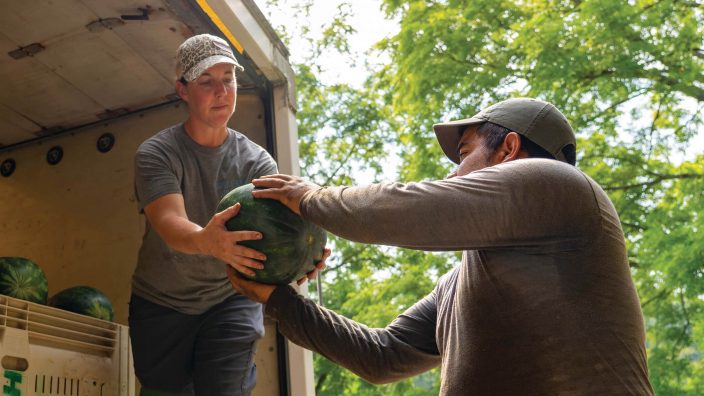Legal with Leah: The questions around data centers
Leah Curtis joins this Legal with Leah to talk about what data centers mean for local communities and how to stay engaged in the development process
Read MoreGreat Lakes Ag Labor Services is a new member service offered to Ohio Farm Bureau members through a partnership with Michigan Farm Bureau.
Hirsch Fruit Farm and Way Farms are two operations in Ross and Pike counties that, harvest after harvest, found themselves in the same predicament.
Specializing in high-value, specialty fruits and vegetables, both operations rely on manual labor for harvesting during the busiest time of their year. But the farms’ relatively small sizes made finding and obtaining reliable workers even more difficult.
Understanding all the costs associated with temporary labor, it was naturally assumed that using the federal H-2A foreign labor worker visa program would be cost-prohibitive. That is until they learned about Great Lakes Ag Labor Services, a full-service ag labor agency focused on H-2A visas.
Great Lakes Ag Labor Services is a new member service offered to Ohio Farm Bureau members through a partnership with Michigan Farm Bureau.

“Everyone that employs labor on their farms knows the value of having reliable employees,” said Steve Hirsch, a fifth-generation owner. The Ross County Farm Bureau member served as president of the Ohio Farm Bureau for five years before stepping down in 2016 and currently serves on Nationwide’s board of directors.
With the guidance of Great Lakes, the Hirsch and Way families entered a joint agreement and during this year’s growing season are sharing the same H-2A work crew from Mexico.
“It has become harder and harder to find folks willing to do jobs in agriculture,” Hirsch said. “Having access to the H-2A program and resources through Great Lakes Ag Labor Service is extremely important going forward.”
Hirsch Fruit Farm is composed of about 500 acres, about 100 of which are dedicated to fruit trees, berries and various specialty vegetables. Hirsch runs the operation with his brother, Mike, and father, Frank.
A story many farmers can relate to, Hirsch reports the past few years have been a significant struggle to find people willing to do harvest work. He had issues with everything from showing up on time, workers being adequately prepared or working enough days for enough time.
Depending on manual harvesting — in addition to on-farm sales, an off-farm retail store and wholesale customers – lack of qualified help made things extremely difficult.
Only 15 miles away, Way Farms is of similar build to the Hirsch farm. Husband-wife duo Cameron and Mandy Way, Pike County Farm Bureau members, started the operation in 2003. Since then, it has grown from three to 160 acres; half row crops and half produce from pumpkins and gourds to greens, berries and flowers sold on and off the farm.
 With 70-plus hour weeks, only one to two full-time employees and difficulty finding more dependable labor, the Ways found themselves worn out physically and emotionally.
With 70-plus hour weeks, only one to two full-time employees and difficulty finding more dependable labor, the Ways found themselves worn out physically and emotionally.
“We knew we had to take a different approach for farm labor sooner than later. We had often contemplated hiring H-2A employees,” Mandy said. “However, it seemed to be such an overwhelming process due to the paperwork, fees, and we honestly did not know where to start.”
That would all change when Hirsch approached them with a solution.
Hirsch came across Great Lakes through an ad in the Buckeye Farm News (Our Ohio’s sister publication). He said that he knew other farmers who used the H-2A program but was initially afraid it would be cost-prohibitive.
After speaking with Great Lakes and learning about the joint contract, almost immediately Hirsch thought of the Ways. They had worked together for years by buying and selling produce items to complement their operations. He also knew of their similar labor struggles. By May, the mutual agreement was signed.
Great Lakes is unique among ag labor consultants because it’s grassroots, conceptualized and developed by and for farmers who are members of Farm Bureau, said Sarah Black, Great Lakes general manager. The company was founded by Michigan Farm Bureau.
“We like to wrap ourselves around the grower,” Black said. “We want them to go into this eyes wide open, knowing everything that they’re getting into and then helping them with all the different pieces.”
Besides setting up the joint contract agreement, Great Lakes also set both farms up for success for them and their new workers. In addition to assisting with details like housing requirements, compliance, domestic recruitment and answering general questions, they also have staff (most of whom are bilingual) come out to farms and help provide on-boarding services once workers arrive.
“We’re able to have ongoing support with the (farm) we’re working with…throughout the entire season,” said Misty DeBoer, assistant operations manager and labor program coordinator for Great Lakes. “We educate (farmers) on the different major areas of the H-2A programs.”
DeBoer said they fully understand farming isn’t a 9-5 job, so their staff is available 24/7 to provide support as needed.
“The biggest plus for us is that we have had a reliable harvest crew the entire season,” Hirsch said. “The workers want to earn as much as they can, are willing to work lots of hours and are prepared for weather changes.”
As farmers, they also appreciate the success they’ve had with harvesting their crops on time while still having the flexibility to do other jobs around the farm.
“GLALS explained everything upfront and made sure we knew what was expected and what the costs involved were,” said Hirsch. “They walked us through every process along the way and helped orient the workers when they arrived.”
Hirsch suggests that those interested in exploring H-2A workers start the process early, about six months in advance of when workers are needed.
“If you need workers in June, you need to start in January to make sure all the paperwork gets done in a timely manner,” he said. “You have to work through the various federal departments and sometimes it can be slow.”
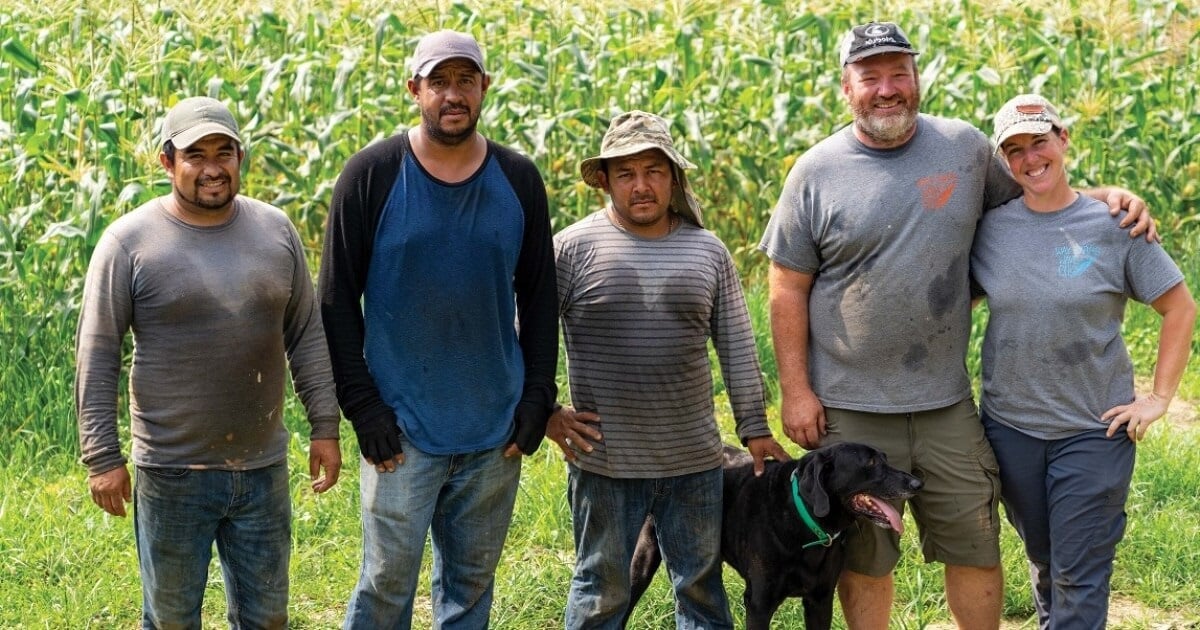
However, both he and Mandy agree GLALS made the whole process very efficient while being patient and helpful all the while. By working together, they split up costs like legal fees, utilities and housing which also made things more affordable.
DeBoer notes that applying for an H-2A visa is a long, legal process that goes through the Department of Labor and requires the farmer to prove they’ve done all they can to get domestic workers on their farm. Another misconception is that temporary workers are “cheap labor.” In fact, they must be paid competitive wages to what local workers might receive.
“The H-2A program is not a replacement program – it’s a supplemental program that was created due to the chronic shortage of farming labor,” she said.
The goal of the program isn’t to displace domestic workers. In fact to apply for this program it must specifically be for seasonal roles and only after the job openings have been promoted locally. GLALS said the quality of their help has been met with high praise from customers – including the Hirsches and Ways.
“Once they’ve been assigned a task, they know how to do it, when, and where without being reminded or directly supervised throughout their entire shift,” said Mandy. “This is a huge relief to us.”
Ohio Farm Bureau has partnered with GLALS, a full-service agency helping farms secure labor through the H-2A foreign worker visa program. GLALS’ team works closely with farm sector employers to ensure their agricultural business is properly staffed, prepared and everyone is on the same page. It was founded by the Michigan Farm Bureau in 2014.
ONLINE EXTRA


Leah Curtis joins this Legal with Leah to talk about what data centers mean for local communities and how to stay engaged in the development process
Read More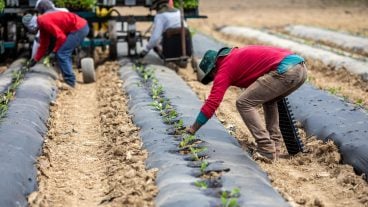
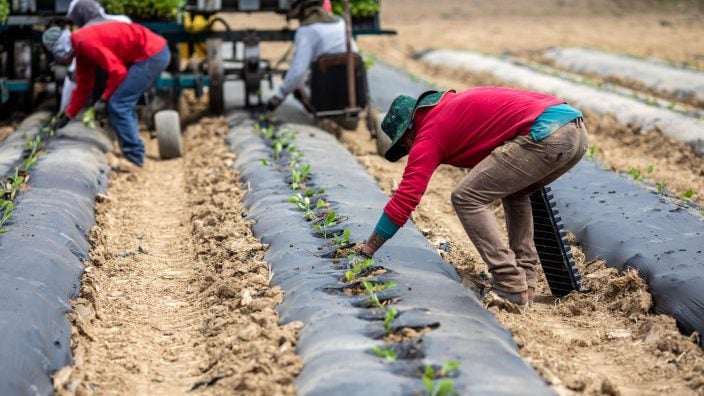
A recent state budget fix and a federal rule reform to H-2A have resulted in some relief for farmers who use the guest worker program.
Read More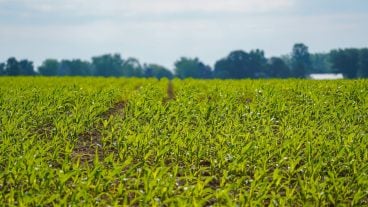
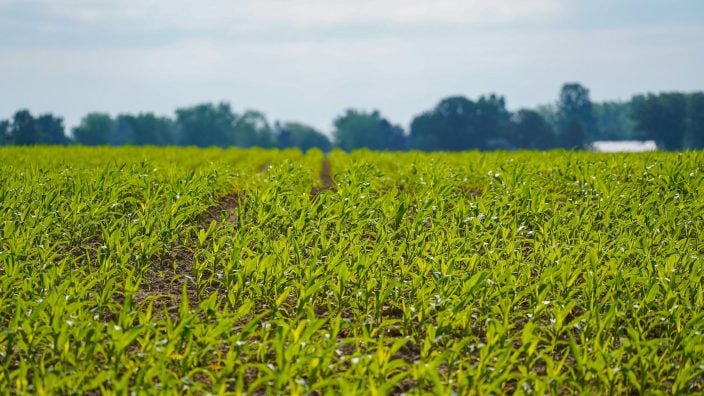
Ohio Farm Bureau advocated for a change in the law to allow family members and employees to handle pesticides while under the supervision of a licensed applicator. The rules around HB 10 are being finalized.
Read More

Four property tax reform bills were signed into Ohio law at the end of 2025. Ohio Farm Bureau Associate General Counsel Leah Curtis breaks down the bills and what the changes mean for Ohioans.
Read More

A proposal to import beef from Argentina comes on top of the government shutdown and ongoing economic pressures facing agriculture.
Read More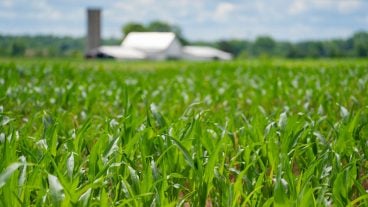
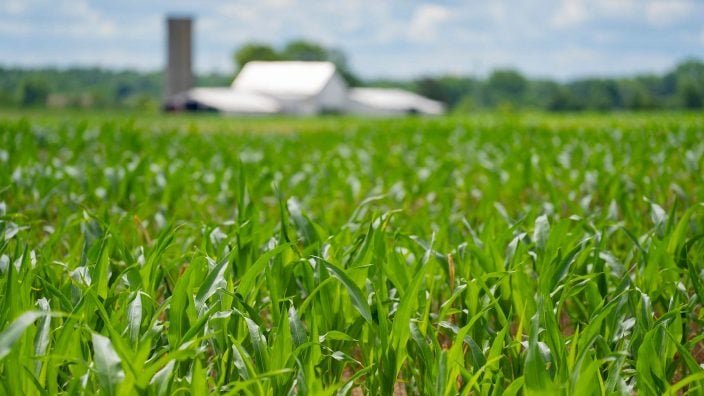
Any unlicensed handlers who use restricted use pesticides will need to have additional training. Farm Bureau will be working on legislation to give employers a choice on how to provide training.
Read More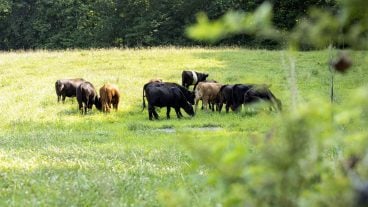
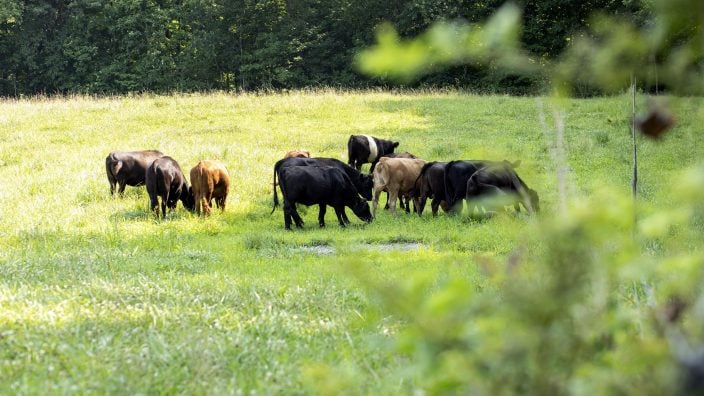
After nearly 100 days of traveling the nation and visiting directly with hundreds of farmers across America, U.S. Secretary of…
Read More

Over 20% of all the production in the United States from agriculture gets exported to a different country.
Read More

On this Ohio Farm Bureau Podcast, get an update on challenges borrowers are facing in 2025 from experts at Ag Credit and find out how the current state of agriculture is affecting the organization.
Read More

Ohio Farm Bureau has collected information and resources that will be updated as the trade and tariff situation continues to unfold.
Read More